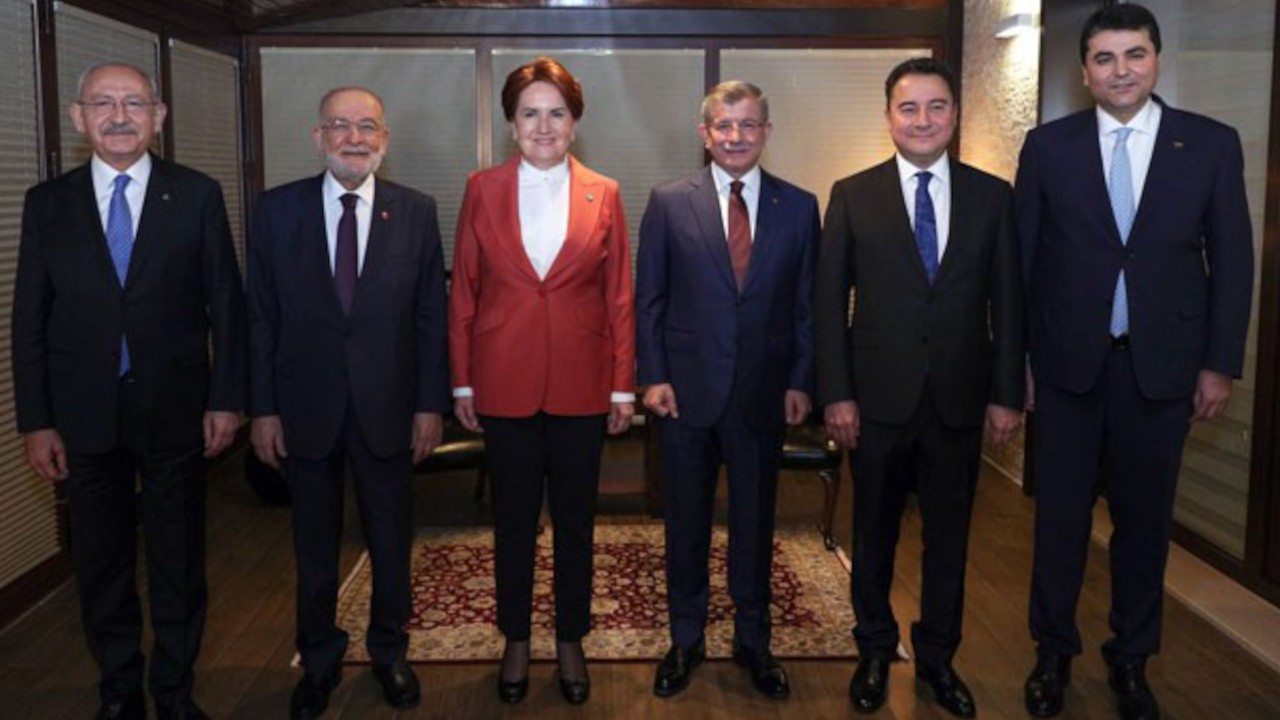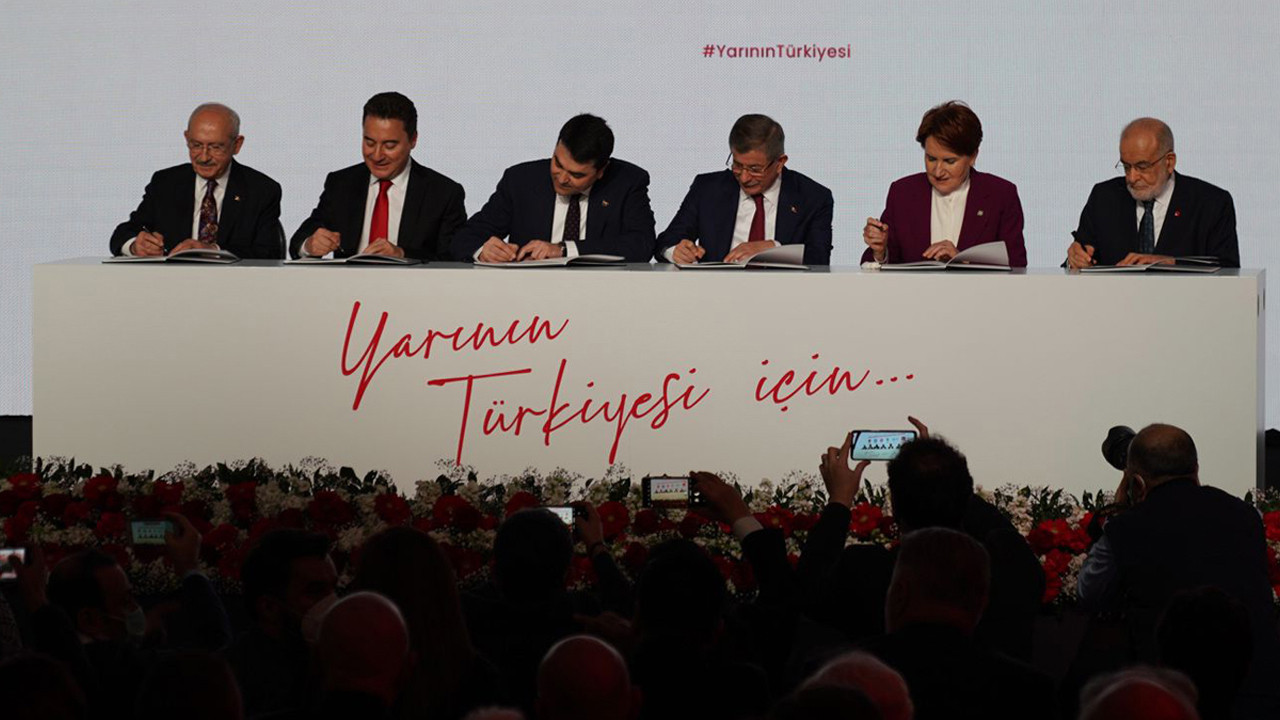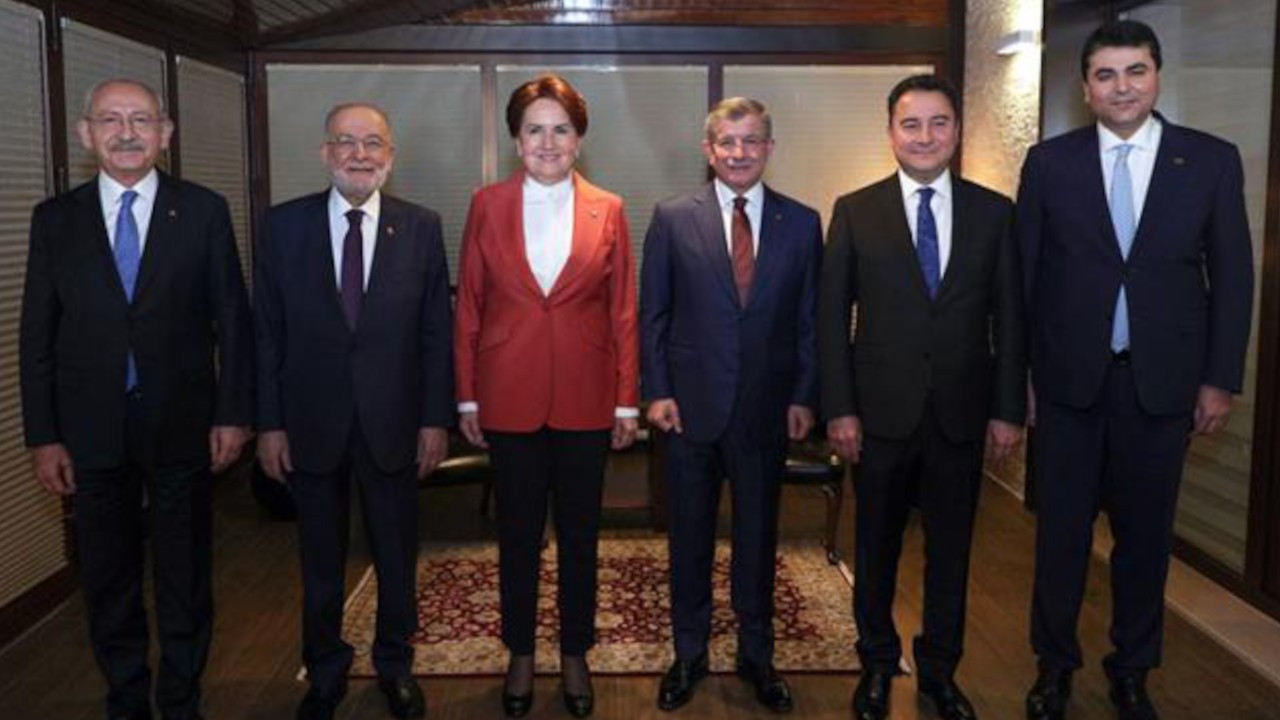DEVA Party leader Babacan visits İYİ Party chair ahead of opposition leaders’ summit
Liberal opposition Democracy and Progress (DEVA) Party leader Ali Babacan has begun a tour to visit opposition leaders ahead of a summit his party will host on March 27 with them for their works on a 'strengthened parliamentary system.'
Duvar English
Liberal opposition Democracy and Progress (DEVA) Party leader Ali Babacan has begun a tour to visit opposition leaders ahead of a summit his party will host by the end of March.
Babacan visited İYİ (Good) Party leader Meral Akşener on March 21 as part of his visits to opposition leaders, who are working on introducing a “strengthened parliamentary system” in the event that the opposition defeats the government-led People’s Alliance in the upcoming elections in 2023.
The leaders of the main opposition Republican People’s Party (CHP), Felicity (Saadet) Party, Future Party, Democrat Party, DEVA and İYİ Party signed a joint declaration for the “strengthened parliamentary system” late last month.
The six leaders will gather again on March 27 at the summit to be hosted by DEVA Party.
Babacan will meet all the leaders separately before the summit.
After Akşener, Babacan will meet CHP leader Kemal Kılıçdaroğlu, Democrat Party leader Gültekin Uysal, Saadet Party chair Temel Karamollaoğlu, and Future Party head Ahmet Davutoğlu.
On Feb. 28, the leaders of six opposition parties in Turkey signed a joint declaration outlining their plan to return to the parliamentary system and take away excessive powers the president holds if they win the 2023 elections.
Their plan is to overhaul the existing executive presidential system, which was introduced in 2018 in an election won by President Recep Tayyip Erdoğan’s Justice and Development Party (AKP) and its ally, the Nationalist Movement Party (MHP).
A 48-page document covering 23 articles included stripping the powers of the president and allowing a seven-year one-term for a president, who will only have symbolic powers. The plan also vows the executive power will be held by the council of ministers led by the prime minister.

 Next opposition leaders’ summit to be held on March 27Politics
Next opposition leaders’ summit to be held on March 27Politics Turkish opposition leaders sign joint proposal for strengthened parliamentary systemPolitics
Turkish opposition leaders sign joint proposal for strengthened parliamentary systemPolitics AKP says photo of six opposition alliance leaders shows weakness, not strengthPolitics
AKP says photo of six opposition alliance leaders shows weakness, not strengthPolitics